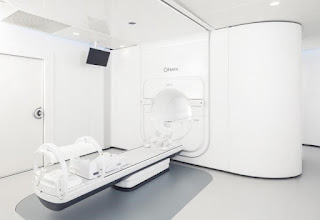Winner and honorable mention
announced for 2018 Stanley Caplan User-Centered Design Award
By Adam Shames
By Adam Shames
Philadelphia, PA – Oct. 2018 – On Tuesday, October 2nd, 2018 the
Product Design Technical Group (PDTG) of the Human Factors and Ergonomics
Society (HFES) came together during the society's annual meeting for an award
ceremony in Philadelphia, PA to recognize professionals who create and design
innovative products. “This award recognizes leadership in both design and
processes used to design innovative and user-centered products,” said Adam
Shames, who co-chairs of the award along with Kathleen Kremer. The prestigious accolade was recently renamed
in honor of its founder, Stanley Caplan, who started it in 2001 and co-chaired
the award with Dianne McMullin until last year when they bestowed that honor
and responsibility on to Adam and Kathleen.
Since 2014,
the awards have been open to individuals and groups who are not a part of HFES
or PDTG. For the 2018 award, nominations included business products, medical
products and workplace furniture with the expected users being office
employees, medical patients, and factory employees. The 2018 award selection
committee was made up of a panel of seven judges drawn from the PDTG members.
Each one is an experienced practitioner in their respective field and the panel
includes a mix of individuals from collective backgrounds aligned with the type
of products from the submissions received. The panel included:
- David Aurelio: Senior Manager, User Research, Dassault
Systems
- Eric Bergman: Director, Human Factors Engineering,
Fresenius Medical Care
- Korey Johnson: Managing Director, Bold Insight
- Michael Lau, Director of Human Factors, Insight Product
Development
- Jing Li: Principal Human Factors Engineer, Baxter
Healthcare Corporation
- Dan Odell, Staff Human Factors Engineer, Google
- Deepti Surabattula: Principal Human Factors Engineer,
Fujifilm Sonosite
Submissions
for the award are judged through several different criteria including ease of
operation, creativity & innovation, functional obviousness, concept
development, design, and evaluation.
Taking first
place was the Elekta Unity submitted by Elekta and DCA Design International,
Ltd. The magnetic resonance radiation therapy (MR/RT) is the first to combine
high-field imaging and precision radiation therapy for personalized cancer
care. It enables medical professionals to view all internal anatomy during
treatment. The machine rotates up to six times faster for treatment from any
angle, features intelligent software, precise targeting, and greater patient
comfort. The Elekta Unity has a myriad of current applications and opens new
potentials. It has the ability to treat tumors formerly considered unsuitable
for radiotherapy. The technology offers the possibility for a “scan, plan and
treat” option and through tumor examination it may be able to offer new
treatment adaptations. (more info here:
Honorable mention
went to the ZC100/300 Series Printer and Ribbon Cartridge submitted by Zebra
Technologies. The thermal transfer card printer is easy to use and offers a
complete printing solution. It features dual-sided printing capabilities, a
slim profile and low clearance, making it the most compact in its class. It
prints cards encompassing credit and debit, ID and access, loyalty, public
transportation passes and much more.
The Stanley Caplan User-Centered
Product Design Award
is presented each year to individuals and teams that have demonstrated
outstanding innovation and design for products, software and systems in
multiple categories. Nominations of consumer, commercial and medical products are
eligible and candidates/teams don’t have to be a member of HFES or PDTG to
participate.
Nominations
for the 2019 year can be submitted at https://bit.ly/2CmmHtd. The 2019 Stanley Caplan
User-Centered Design Award is expected to be presented in October 2019 in
Seattle, Washington.

